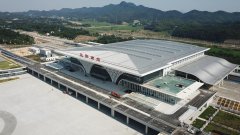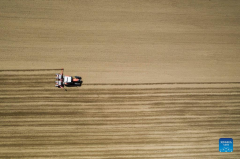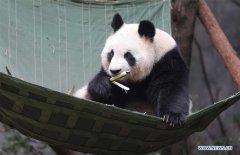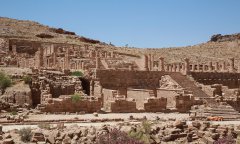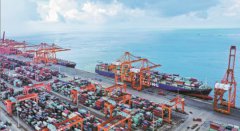Home>>
True or false? Fact-check of some Western media reports on Beijing Winter Olympics(Xinhua) 08:23, January 20, 2022
-- With Beijing 2022 approaching, rumors, speculation and false claims abound, but a closer look at the facts reveals that there is no truth behind those claims.
-- Fake snow is fake news. Artificial snowmaking for Beijing 2022 has little impact on the local water supply and ecology thanks to China's world-leading water-conserving equipment.
-- No cybersecurity risk in using your phone in China. "My 2022" is an multi-functional app that provides convenience for Games participants. It is not obligatory to download it and the app only accesses related phone features upon permission from users.
BEIJING, Jan. 19 (Xinhua) -- With roughly two weeks to go before the 2022 Olympic Winter Games opens in Beijing, rumors, speculations and false claims abound. A closer look at the facts reveals that there is no truth to those claims.
The following are six news reports recently released with unjust claims, and the facts and figures behind them.
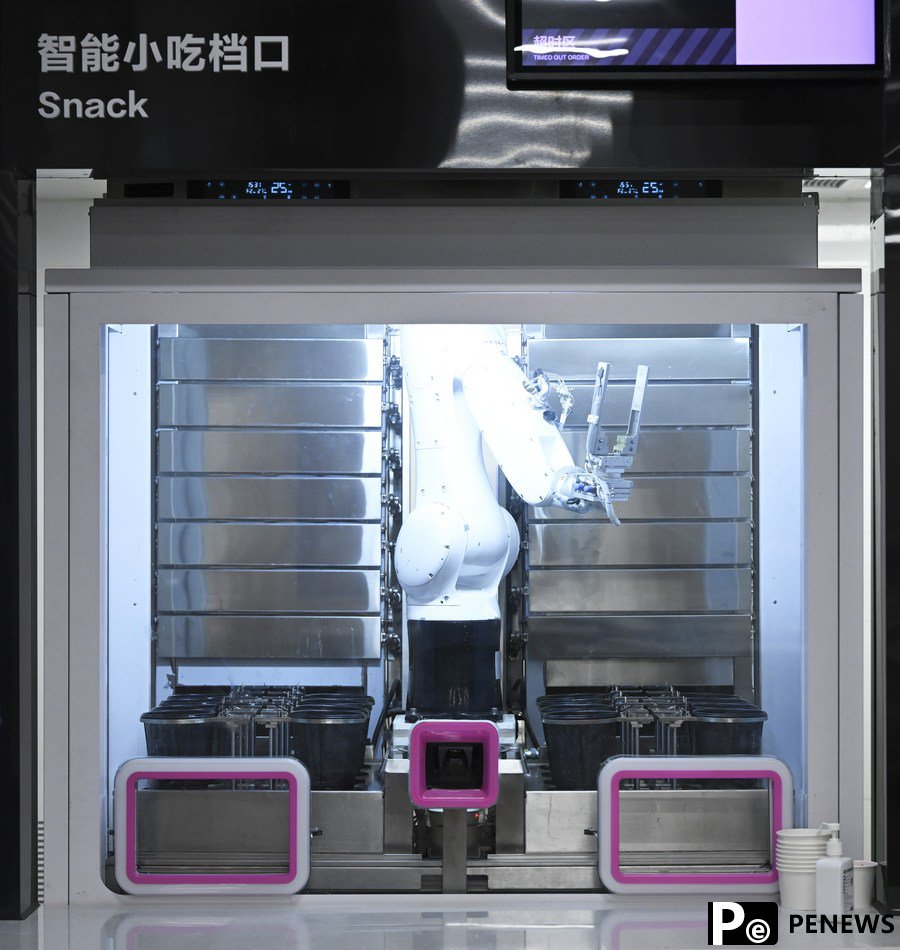
A robot maintains a facility for delivering dishes at the Media Dining Hall of the Main Media Center for the 2022 Olympic and Paralympic Winter Games in Beijing, capital of China, Jan. 10, 2022. (Xinhua/He Changshan)
No. 1: Eating Chinese meat may lead to a doping violation
The claim: An international news agency reported that Germany's Anti-Doping Agency sent a message to athletes heading to Beijing 2022 warning them not to eat Chinese meat for fear of falling foul of doping regulations, claiming that athletes may risk ingesting clenbuterol.
Fact check: Clenbuterol is used by farmers to promote growth and muscle leanness in animals but is banned in many countries, including China, because of its risks to human health.
The Beijing Organizing Committee for the 2022 Olympic and Paralympic Winter Games (BOCOG) has established a three-tier management scheme to ensure food safety, Yu Debin, head of BOCOG's Games Service Department, told Xinhua.
Following consultation with experts, over 200 companies have been selected as raw material and food suppliers for Beijng 2022. Strict management of quality control has been applied throughout the process from planting and cultivation, producing and processing, transportation and storage, cooking, catering and garbage recycling. The whole process is traceable and verifiable, said Yu.
From the sampling survey in the past two years, 98 percent of meat in China passed safety qualifications, according to Zhu Yi, an associate professor of food safety at China Agricultural University. That means the possibility of ingesting clenbuterol is close to zero, Zhu said.
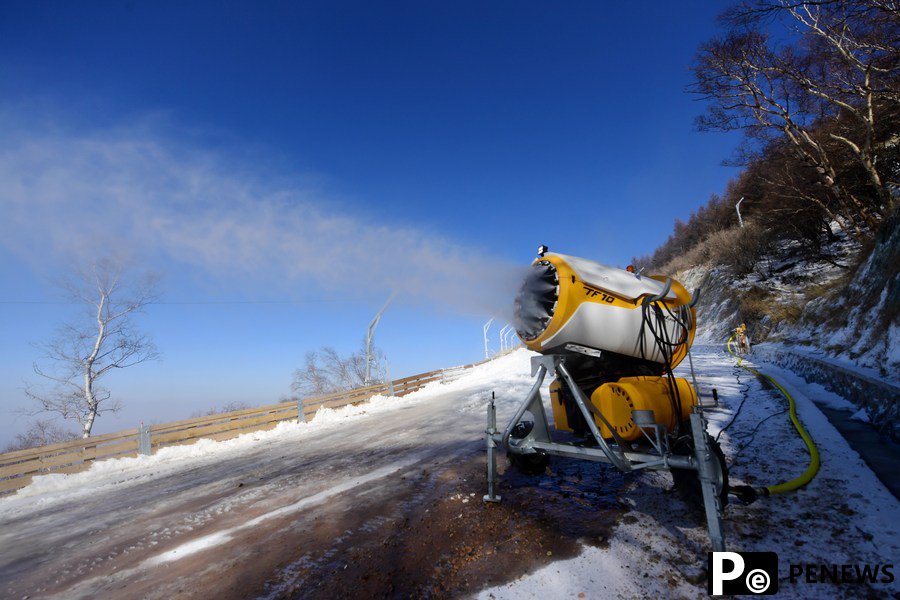
A photo taken on Nov. 16, 2021 shows the snowmaking system in National Alpine Skiing Centre in Beijing, capital of China. (Xinhua/Zhang Chenlin)
No. 2: Artificial snow is fake snow and triggers environmental concerns
The claim: In an article titled "Mounting concern over the environmental cost of fake snow for Olympics" published last November, a British daily newspaper quoted a University of Strasbourg professor saying that Beijing 2022 "could be the most unsustainable Winter Olympics ever held", as artificial snow was water- and energy-intensive, damaging soil health and causing erosion.
Fact check: Artificial snow and fake snow have to be strictly separated at first, as snow is just the solid state of water. Beijing 2022 organizers have vowed to deliver a sustainable and eco-friendly Games. In line with this commitment, snowmaking at some of the Beijing 2022 venues is anything but detrimental to the environment.
Artificial snow was first used at the 1980 Lake Placid Olympic Winter Games. Around 90 percent of snow used at the Alpine skiing venue for the PyeongChang 2018 Winter Olympics was artificial, while man-made snow was also a feature of Vancouver 2010 and Sochi 2014.
Former International Ski Federation (FIS) freestyle coordinator Joseph Fitzgerald told Xinhua that snowmaking is a requirement by the FIS in order to hold ski competitions that can be separated in time. "If you want to wait for nature to provide you with all of the required material to ski on, you risk not being able to organize a competition."
As water occurs in three different states - liquid, solid or vapor - Fitzgerald explained that snow is just water that is in a transitional phase due to the temperatures. It can either occur naturally, or it can be man-made.
Competition snow requires a higher density than recreational snow in order to meet the requirements of the FIS and to ensure conditions are consistent and fair for each competitor.
"Fake snow is like fake news. That's interesting fake news about fake snow. It is quite comical when I read these so-called expert remarks!" Fitzgerald said.
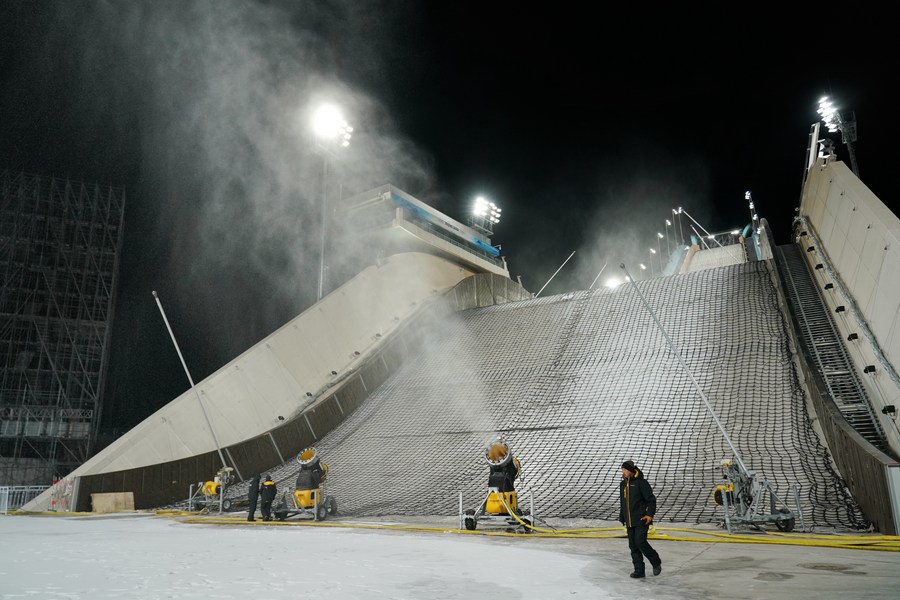
A photo taken on Dec. 12, 2021 shows the snowmaking system in the Shougang Big Air venue in Beijing, capital of China. (Xinhua/Zhang Chenlin)

